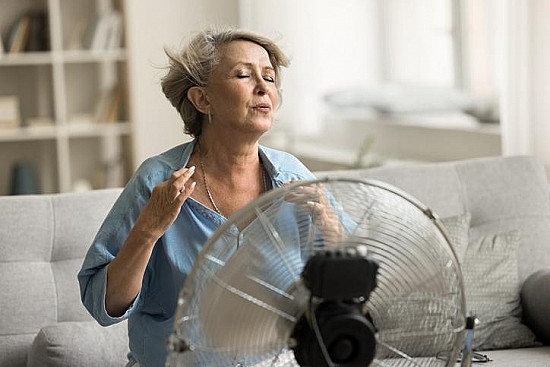Avoiding the pain of kidney stones
If you've had a stone, the problem is likely to recur — but it doesn't have to. Use these strategies for prevention.
The pain associated with kidney stones has been described by some as more excruciating than childbirth. Kidney stones are small, hard stones, formed when high levels of minerals in your urine start to crystallize in your kidneys, forming a pebble-like mass. The pain comes when these stones migrate from your kidneys through the ureters, which are the narrow tubes that carry urine from your kidneys into your bladder.
"Kidney stone pain is not subtle," says Dr. Gary Curhan, a professor of epidemiology at the Harvard T.H. Chan School of Public Health. It typically starts in the flank, at the side of the lower back. Sometimes if the stone moves, the pain migrates to the front of the body.
Occasionally a stone gets stuck as it enters the bladder and causes symptoms — such as a feeling of urgency or frequent urination — that can be mistaken for a urinary tract infection or bladder irritation.
There are actually several different types of kidney stones with different causes. The most common types are
-
calcium stones
-
uric acid stones
-
struvite stones
-
cystine stones.
The stones themselves vary in size, from as small as a grain of sand to as big as a golf ball.

Image: © blueringmedia/Getty Images
Incidence and prevention
One in every 10 women will experience a kidney stone in her lifetime. The bad news: the incidence of kidney stones is rising, according to the National Institute of Diabetes and Digestive and Kidney Diseases (NIDDK). Your chance of having one increases substantially after you've had your first. The good news: in many cases, you can prevent kidney stones from forming. Below are some tips you can use to lessen your risk.
Take care of your body. If you've never had a kidney stone, prevention should take the form of good health habits, which are the same ones you should adopt to prevent other diseases: quit smoking, and follow a healthy diet, such as the DASH diet.
Also try to maintain a healthy weight, because weight gain and being overweight in adulthood — in addition to putting you at higher risk for other health conditions — raises your risk of developing a kidney stone.
Get enough calcium — but from food, not pills. Eating dairy foods and getting calcium from other food sources may help prevent stones. But oddly enough, taking calcium supplements in pill form may raise the risk, says Dr. Curhan. Exactly why this is the case isn't clear, but the reason may be related to the timing of ingestion, he says. Taking supplements first thing in the morning or at night, when people often take them, might affect calcium absorption.
If you've had a kidney stone and you're taking calcium, ask your doctor how much you need and if you are taking too much. "Ask if the supplement is really necessary," says Dr. Curhan.
Drink up. Another prevention strategy is to drink lots of water — at least six to eight 8-ounce glasses a day, provided your kidneys are healthy, according to the NIDDK. Having enough fluid in your diet can prevent high concentrations of minerals in your kidneys that could lead to stones.
Be aware of other risk factors. Some medical conditions may raise your risk of developing a stone. These include
-
type 2 diabetes
-
primary hyperparathyroidism
-
Crohn's disease
-
gout.
Consult a specialist. If you've already had a kidney stone, a specialist can help you tailor your prevention efforts to your particular case and stone type, says Dr. Curhan. A lot of people aren't told that recurrence is in large part preventable, and some people will experience multiple stones as a result, he says.
Seek help if you suspect a stone. If you think you may have a stone or if you're experiencing ongoing flank pain, pay a visit to your doctor. "It's usually not too hard to make a diagnosis of a kidney stone. Once you've had one, you know what it feels like," says Dr. Curhan.
Disclaimer:
As a service to our readers, Harvard Health Publishing provides access to our library of archived content. Please note the date of last review or update on all articles.
No content on this site, regardless of date, should ever be used as a substitute for direct medical advice from your doctor or other qualified clinician.















